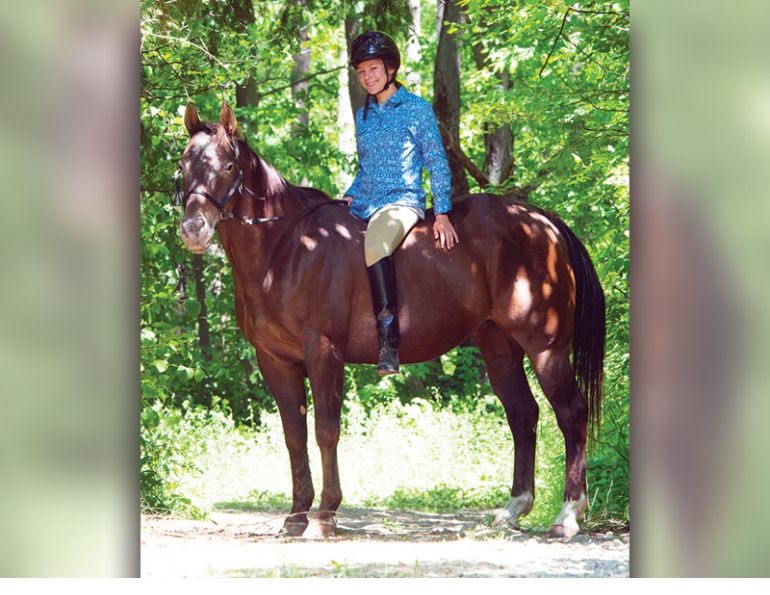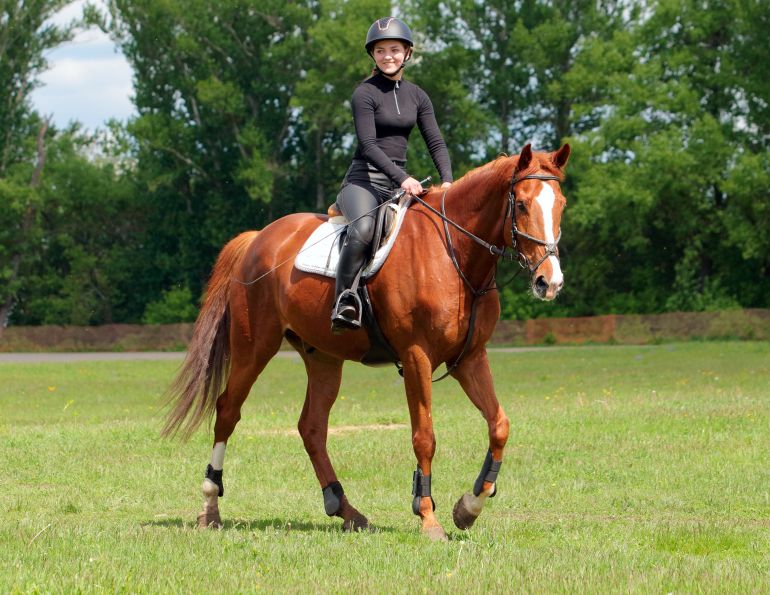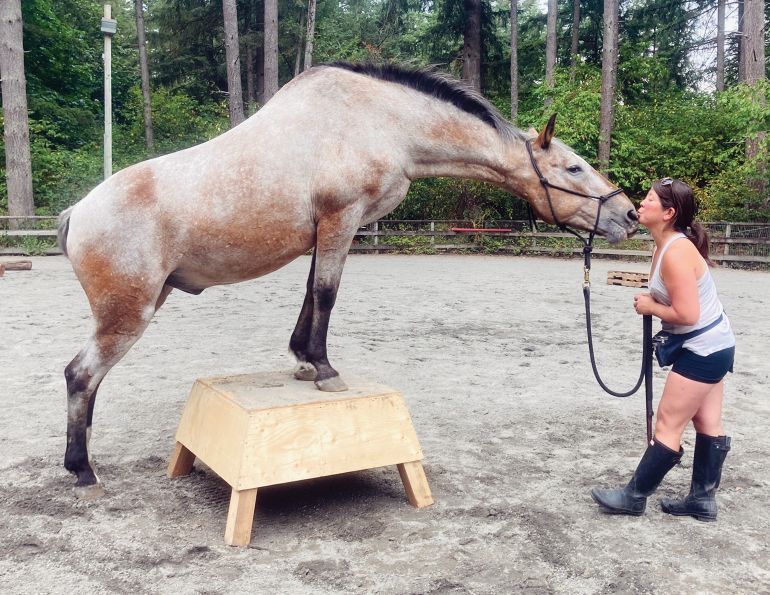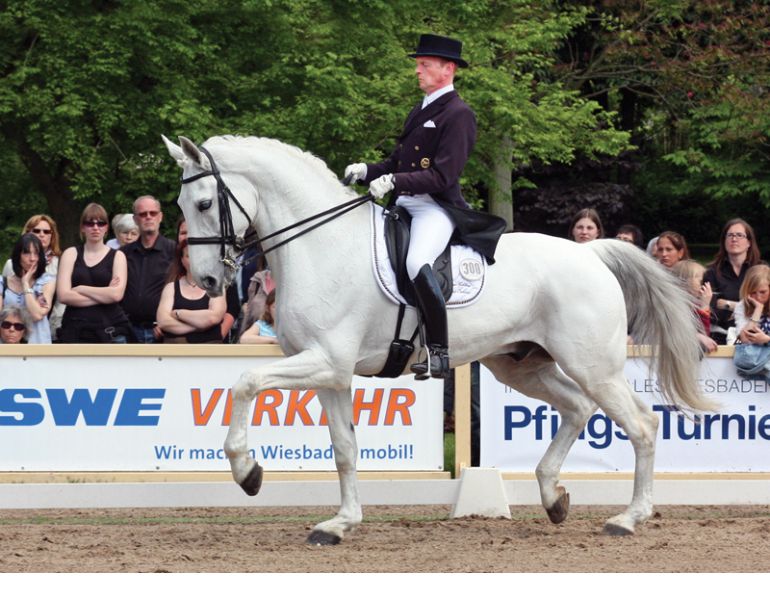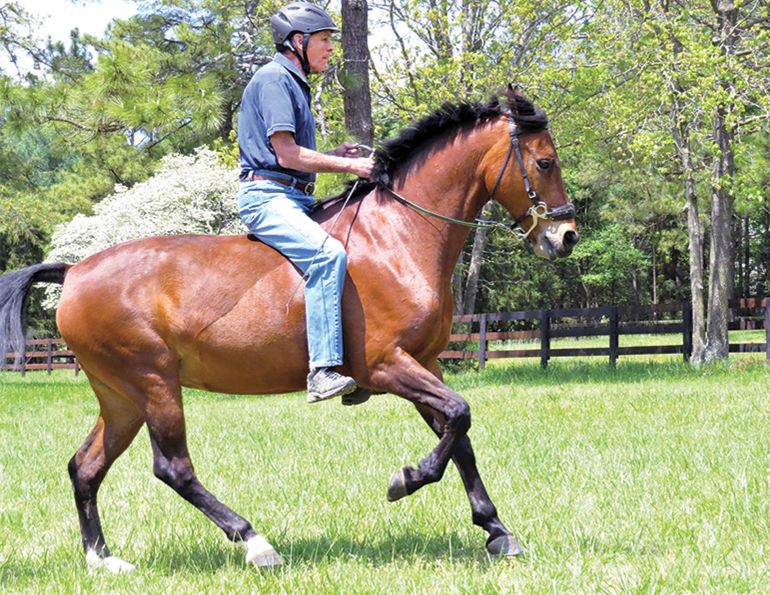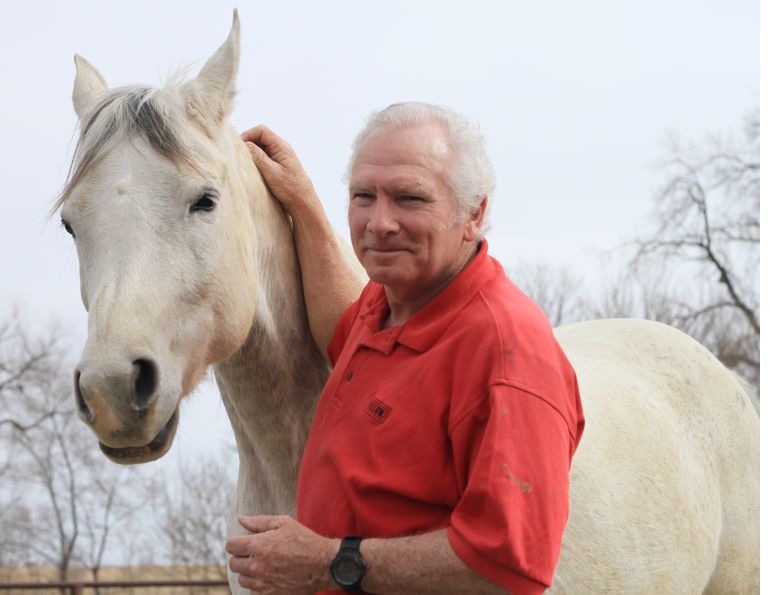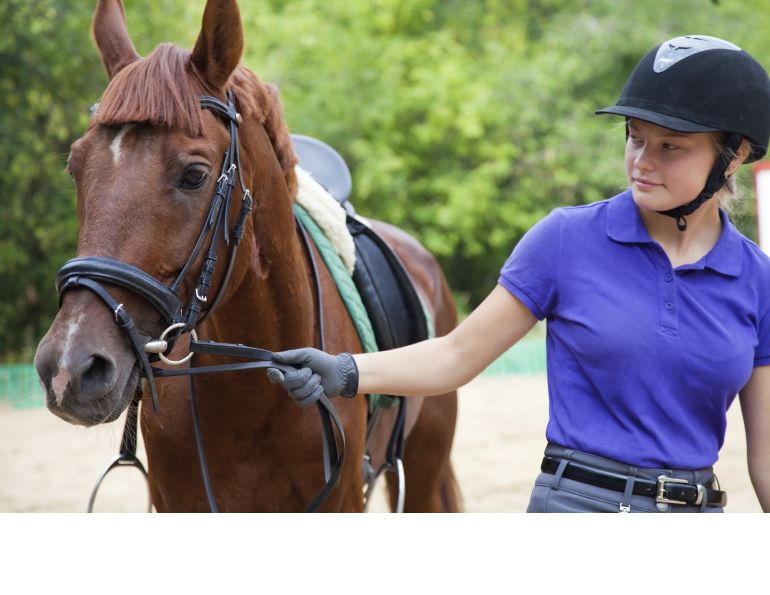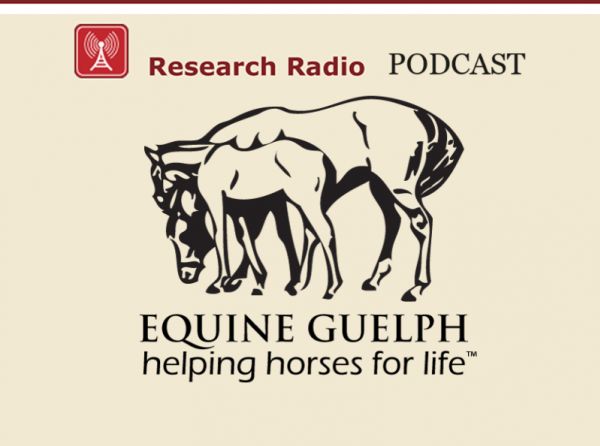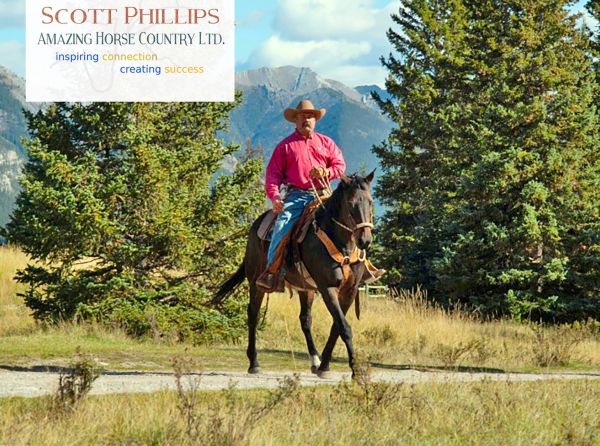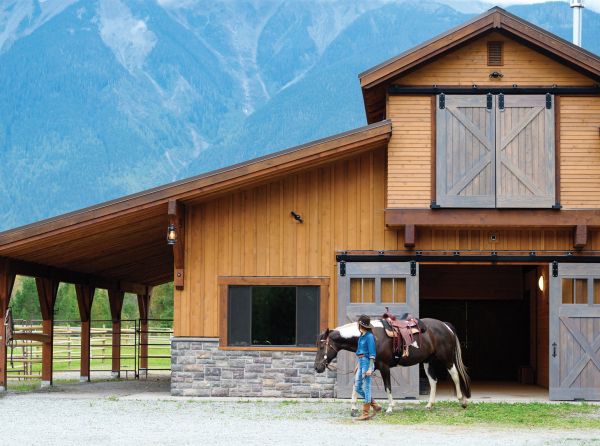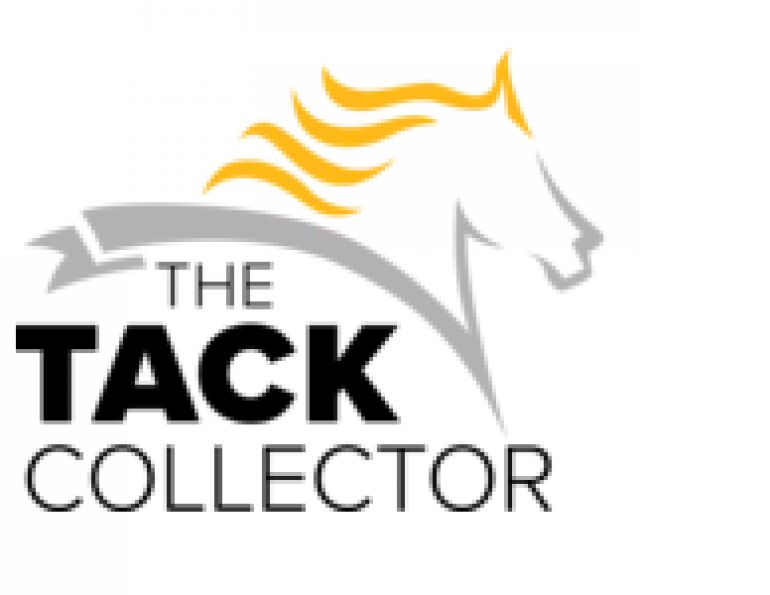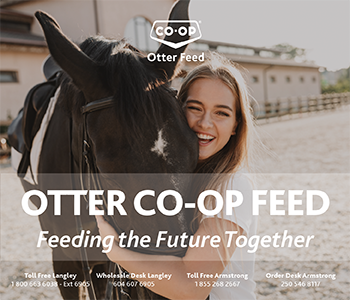By Annika McGivern, BA Psychology, MSc Sport and Exercise Psychology
Every equestrian knows the magic of our unique bond with our horses. It is a relationship that sits at the centre of our lives, supporting us and challenging us in equal measure. Every minute spent with our horses has a big impact on our well-being, which is an individual’s personal experience of good mental health and satisfaction with life. Research now supports what horsey folks have known for years: spending time with horses is good for us, so much so that horses are increasingly being used as a source of therapy. Studies have demonstrated that time spent interacting with horses increases positive emotions, decreasing depression and increasing social connection skills in children and adults alike.
This article will explore how horses support our mental health, and why, as full-time equestrians, we sometimes end up missing out on these benefits due to strong negative emotions associated with our riding. It will look at what we can do to shift our perspective, free ourselves of unhelpful emotions, and maximize the benefits of our connection with horses.
Research highlights several reasons why spending time with horses has a positive impact on our well-being:
- Mastery: A clear sense of mastering something we care about is an important foundational building-block to well-being. When we feel ourselves improving at something we love to do, we feel on-track and content. Riding feeds our sense of mastery by giving us a path to follow with milestones that signal our progress and success.
- Connection: A strong sense of belonging and connection is another foundational element of well-being. Being a rider makes us part of a unique network or group, and forms a strong part of our identity.
- Flow: Riding creates the perfect chemistry for “flow” — a high-performance state of mind that happens when our skills are being perfectly challenged by the task at hand. You know you’re in flow when you are completely absorbed by the present moment, lose track of time, and find yourself performing at your best, sometimes beyond what you thought was possible.
Given all of these positive effects, it might be easy to assume that everyone involved with horses must live in a pleasant bubble of perfect mental health. Wouldn’t that be nice? However, for most of us this just isn’t true. Recent research on well-being in equestrian sport has shown that equestrians, just like other athletes, also face significant challenges to their well-being and mental health. These include the high demands on time and resources, the significant risks of climbing aboard a large flighty animal, the inevitable impact of injury, and the significant pressure of the competitive environment. All of this puts a real strain on mental health.

Spend your precious horse time in a calm, centred frame of mind, celebrating the many small steps of progress in your journey toward mastery, and feeling all the moments of joy in your connection to your horse and your riding community. Photo: iStock/Genekrebs
Like most interesting areas of life, we face a paradox. Although spending time with horses has real benefits for our mental health, the stresses and demands of horse sport often outweigh those benefits and leave us feeling worn out and mentally depleted. The problems stem from the fact that we care about riding so deeply that our successes and failures become a measure of our own self-worth. Because of this, riding can become a very emotional experience: a roller-coaster of worry, fear, and self-doubt. As we become increasingly serious about succeeding in competition, training our young horse, or reaching our goals, the pressure to reach these outcomes results in a host of negative emotions, which cloud our ability to tune in to the parts of riding that benefit us.
We are all familiar with this cycle: A stressed out, emotional rider creates a tense horse, which results in a frustrating ride, which strengthens the frustration and stress for the rider. Strong emotions and stress make us very reactive, resulting in inconsistent aides, a reactive horse, and sometimes unfair consequences for that horse. Why does this happen? Most of us know a friend who seems to exist as a perpetual bundle of nerves. Imagine being around this person and think about how it makes you feel. Can you feel the stress creeping through the air and clinging to you? Do you walk away from the encounter suddenly feeling unreasonably stressed out yourself? Emotions are contagious. When we don’t take it upon ourselves to learn better emotional management, our own emotions directly influence our horses.

Mistakes show us what we are doing wrong and what we need to improve. Rather than feeling angry or embarrassed, redefine failures and mistakes as opportunities to learn faster. Photo: Shutterstock/AuCr
So, how do we break this cycle and regain more control over our emotions? Our experience of negative emotions and turmoil usually stems from a fear of failure and making mistakes, and a desire to look like a good rider. Instead of being drawn down this road to nowhere useful, here are the three steps to dramatically change our experience:
Step 1: Redefine failure.
To be free of the fear of failing or making mistakes, we must reset our interpretation of what these experiences mean. We so often see failure and mistakes as a defining moment, something that labels us permanently as a good rider or a bad rider, talented or not talented. Instead, we can choose to see mistakes and failure for what they really are: an inevitable and important opportunity to learn faster.
Messing up shows us exactly what we are doing wrong and what we need to do to improve. However, we usually miss the lesson hiding inside a mistake because we are too busy feeling embarrassed or guilty or angry about it.
Step 2: Redefine who we are striving to be.
Once we reset our interpretation of mistakes and failures, the next step is to reset our idea of the “ideal rider.” If we see the ideal rider as someone who never makes mistakes, and therefore we think that to be our ideal or best selves we should never make mistakes, then we are setting ourselves up for trouble. When reality doesn’t line up with our expectations for ourselves, in come the negative emotions. We get embarrassed, guilty, angry, disappointed, jealous, resentful, or sad. We can’t change reality, but we can reshape our understanding of the type of rider we are striving to be.
Let go of the idea of being a perfect rider, who never makes mistakes. Instead, embrace a more realistic ideal: a rider who isn’t afraid to fail and make mistakes; a rider who is willing to risk embarrassment and discomfort to learn and improve faster; a rider who prioritizes learning over looking like they have it all figured out. Holding this type of rider as our ideal means we don’t ever experience a misalignment with reality, and therefore we have no need for all of those negative emotions.
Step 3: Find the moments.
As we learn to reduce our negative emotions and spend more of our time at the barn in a calm, focused, patient, and centred frame of mind, we will be operating from a place that allows us to be present and recognise all of the important day-to-day moments that bolster our well-being. We can identify and celebrate the small steps of progress that represent our journey towards mastery. We can notice and enjoy our own growth through challenges. We can feel the connection to our horses and the riding community around us. And we can recognise the moments of presence and flow that allow us to lose ourselves in the sheer enjoyment and challenge of getting the best from ourselves and our horses. It is our frame of mind that makes the difference here. These moments are always available to us to recognize; however, when we are distracted by worry, nerves, self-doubt, or embarrassment, they are almost impossible to notice and take in.
This is our challenge. We either get ourselves mentally prepared to benefit from the time spent with our horses, or we continue along in the same muddle of embarrassment and self-deprecation that gets us nowhere. This means setting the bar not at mistake-free perfection, but at continuous learning and improvement. Accept the inevitability of mistakes, and decide to love being a rider who makes mistakes often and learns faster as a result. Practice being calm, patient, and centred so that you can notice and enjoy the small, daily wins that mark your growth and progress, and the moments of connection with your horse and your community.
Don’t expect to do all of this overnight. Pretty much everything worth doing in life takes time and patience. If you do the work, however, you’ll find that mastering this state of mind will mean spending less time in a cloud of negative emotions at the barn and more time growing and learning quickly. Without all of that noise in our heads, we can notice every small moment of joy our horses have to offer us.
Main Photo: iStock/Yuri Arcurs






